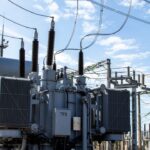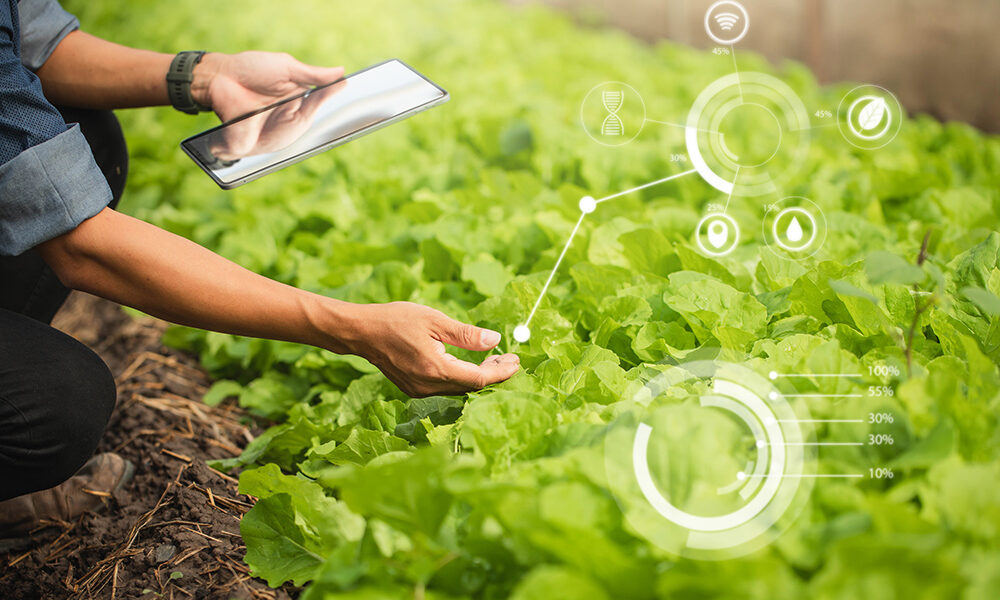In an era where environmental sustainability is of paramount importance, the integration of Internet of Things (IoT) solutions in agriculture has revolutionized the way we farm. Smart farming, powered by IoT, enables farmers to adopt precision agriculture practices, optimizing resource usage and minimizing environmental impact. This blog delves into the environmental advantages of smart farming and explores how IoT solutions contribute to a greener and more sustainable future for agriculture.
Understanding Smart Farming and IoT Solutions
Defining Smart Farming:
Smart farming, also known as precision agriculture, encompasses the use of advanced technologies, including IoT solutions, sensors, and data analytics, to monitor and control various aspects of farming operations. By leveraging real-time data, farmers can make informed decisions to enhance productivity and sustainability.
Role of IoT Solutions:
IoT solutions play a pivotal role in smart farming by enabling seamless connectivity and data exchange among agricultural devices and systems. These solutions collect valuable data on soil moisture, weather conditions, crop health, and resource usage. By analyzing this data, farmers gain insights that enable them to optimize farming practices, reduce waste, and conserve resources.
Environmental Advantages of Smart Farming
Water Conservation:
Water scarcity is a global concern, and smart farming addresses this challenge by facilitating precise irrigation practices. Through IoT-enabled sensors, farmers can monitor soil moisture levels, weather patterns, and crop water requirements in real-time. By delivering water precisely where and when it is needed, water waste is minimized, contributing to sustainable water management.
Reduced Chemical Usage:
Smart farming techniques empower farmers to adopt targeted pest and disease management strategies. IoT solutions allow for the early detection of pests, enabling farmers to implement precise interventions. By minimizing the use of chemical pesticides and herbicides, smart farming reduces chemical runoff, promotes biodiversity, and safeguards the environment.
Efficient Resource Management:
With IoT solutions, farmers can optimize resource management and minimize waste. Real-time data on soil conditions, crop growth, and weather patterns enable farmers to apply fertilizers and nutrients precisely, reducing environmental pollution and nutrient runoff. Additionally, IoT-based automation systems control resource usage, ensuring efficient energy, water, and fuel consumption.
Implementing IoT Solutions for Environmental Sustainability
Selecting the Right IoT Platform:
Choosing a suitable IoT platform is crucial for successful implementation. Consider factors such as scalability, compatibility, data security, and ease of integration with existing farm infrastructure. Selecting the right platform ensures seamless connectivity and efficient data management.
Data Analytics and Decision-Making:
Data analytics is a cornerstone of smart farming. By harnessing IoT solutions and data analytics, farmers gain valuable insights into their operations. Real-time data enables informed decision-making, optimizing resource allocation, reducing waste, and maximizing productivity. Data-driven farming practices lead to improved sustainability outcomes.
Collaborating for Knowledge Sharing:
Collaboration among farmers, researchers, and technology providers is vital for the advancement of smart farming. Sharing best practices, innovative solutions, and lessons learned fosters a community-driven approach to sustainable agriculture. Collaborative efforts accelerate the adoption of IoT solutions and drive positive environmental change.
Conclusion:
Smart farming, empowered by IoT solutions, offers a host of environmental advantages that contribute to sustainable agriculture. Water conservation, reduced chemical usage, and efficient resource management are key benefits of implementing IoT in farming practices. By embracing IoT technologies and data-driven approaches, farmers can foster a greener and more sustainable future. Through collaboration and knowledge sharing, we can collectively advance smart farming and create a resilient agricultural sector that preserves our environment for generations to come.
FAQs (Frequently Asked Questions)
Q: How can small-scale farmers benefit from IoT solutions in smart farming?
A: IoT solutions can be tailored to suit the needs and scale of small-scale farmers. There are cost-effective options available that provide valuable insights and benefits, allowing small-scale farmers to optimize their operations and enhance sustainability.
Q: What are the potential challenges in adopting smart farming practices?
A: Challenges in implementing smart farming include initial investment costs, data management and security concerns, and the need for technical knowledge and training. However, with proper planning, support, and education, these challenges can be overcome, and the environmental benefits of smart farming can be realized.
Q: How does smart farming contribute to overall sustainability in agriculture?
A: Smart farming optimizes resource usage, minimizes waste, reduces environmental impact, and promotes sustainable practices. By leveraging IoT solutions and data analytics, farmers can make informed decisions, conserve resources, and create a more sustainable and resilient agricultural sector.









